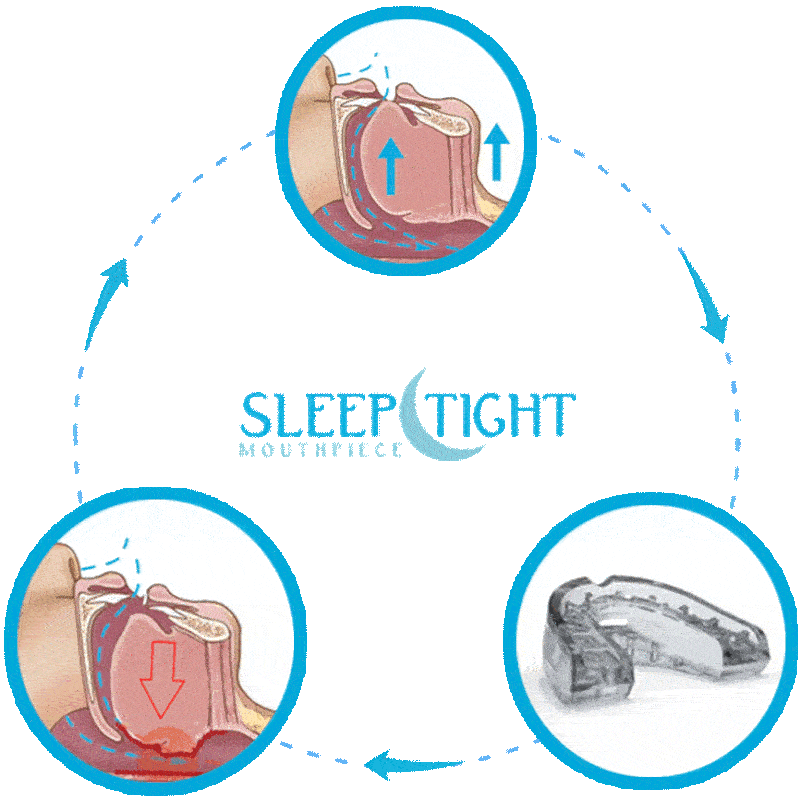Have you ever wondered why a good night’s sleep can make you feel refreshed and ready to take on the day, while a night of tossing and turning leaves you feeling irritable and moody? It turns out that there is a strong link between sleep and mental health. In fact, poor sleep can have serious negative effects on your mental well-being. But don’t worry, in this article, we will delve deeper into this topic and explore how exactly sleep affects your mental health. So, grab a cozy blanket and get ready to unravel the mysteries of the sleep-mental health connection.
When it comes to mental health, sleep plays a crucial role in maintaining a healthy state of mind. Sleep allows your brain to rest and recharge, just like how a good night’s sleep allows you to feel refreshed and energized the next morning. Lack of sleep, on the other hand, can lead to a variety of mental health problems. For example, it has been found that people who consistently have poor sleep quality are more likely to experience symptoms of anxiety and depression. Additionally, inadequate sleep can impair your ability to regulate emotions and handle stress, leading to increased feelings of irritability and moodiness. But fear not, as we dive deeper into this topic, we will explore strategies to improve your sleep and ultimately enhance your mental well-being. So, stay tuned for more information on how to improve the link between sleep and mental health.
Understanding the Importance of Sleep for Mental Health
The fundamental connection between sleep and mental health
Sleep is a vital aspect of our well-being, playing a significant role in supporting both our physical and mental health. It is during sleep that our bodies and brains recharge, repair, and consolidate memories. Adequate sleep is essential for optimal cognitive function, emotional regulation, and overall mental well-being.
How lack of sleep affects mental health
When you don’t get enough sleep, it can have a detrimental impact on your mental health. Research has shown that chronic sleep deprivation is associated with an increased risk of developing mental health disorders such as anxiety disorders, depression, bipolar disorder, and attention-deficit hyperactivity disorder (ADHD).
Lack of sleep can result in impaired brain function, leading to difficulties with concentration, decision-making, and problem-solving. It can also amplify emotional reactivity and reduce your ability to cope with stress. Furthermore, inadequate sleep can contribute to the development of negative thought patterns and a heightened risk of developing mood disorders.
The role of sleep in emotional regulation
Sleep plays a crucial role in emotional regulation, helping to maintain a balance between positive and negative emotions. During sleep, the brain processes and regulates emotional experiences, allowing for emotional recovery and resilience. Sufficient sleep enhances our ability to regulate our emotions effectively, reducing the likelihood of mood disorders and emotional instability.
The Impact of Mental Health Disorders on Sleep
Common mental health disorders associated with sleep disturbances
Many mental health disorders are closely linked to sleep disturbances. Anxiety disorders, such as generalized anxiety disorder, panic disorder, and post-traumatic stress disorder (PTSD), often come hand-in-hand with difficulties falling asleep, staying asleep, and experiencing restful sleep. Similarly, individuals with depression frequently experience insomnia or hypersomnia, altering their sleep patterns and quality.
Insomnia: A manifestation of mental health issues
Insomnia, characterized by difficulties falling asleep, staying asleep, or experiencing restorative sleep, is not only a sleep disorder but often a manifestation of underlying mental health issues. Stress, anxiety, and depression can contribute to the development and persistence of insomnia, creating a vicious cycle where poor sleep exacerbates mental health symptoms and vice versa.
The vicious cycle of mental health and sleep problems
The relationship between mental health and sleep disturbances is a bi-directional one. Mental health conditions can cause sleep problems, and at the same time, poor sleep can worsen mental health symptoms. This cyclical nature can make it challenging to break the cycle and requires a holistic approach to address both mental health and sleep concerns simultaneously.
Sleep Disorders and Their Effects on Mental Health
Different types of sleep disorders and their prevalence
Various sleep disorders can have profound effects on mental health. Insomnia is one of the most common sleep disorders, affecting a significant portion of the population. Other sleep disorders include sleep apnea, narcolepsy, restless legs syndrome, and parasomnias. These disorders can disrupt sleep patterns, leading to fatigue, cognitive impairments, and increased vulnerability to mental health disorders.
Sleep apnea: An obstructive sleep disorder with mental health implications
Sleep apnea, characterized by repeated pauses in breathing during sleep, is a common sleep disorder that can have significant implications for mental health. The intermittent hypoxia and fragmented sleep associated with sleep apnea can lead to excessive daytime sleepiness, fatigue, and mood disturbances. Studies have also found a higher prevalence of anxiety and depression among individuals with sleep apnea.
Narcolepsy: A neurological disorder and its impact on mental well-being
Narcolepsy, a neurological disorder characterized by excessive daytime sleepiness and sudden loss of muscle control (cataplexy), can significantly impact mental well-being. Individuals with narcolepsy often struggle with maintaining consistent sleep-wake patterns, leading to disruptions in their daily functioning and emotional stability.

The Bi-directional Relationship Between Sleep and Mental Health
How poor sleep contributes to the development of mental health disorders
Poor sleep can contribute to the development of mental health disorders by impairing cognitive function, increasing emotional reactivity, and reducing stress resilience. Chronic sleep deprivation alters the brain’s functioning, negatively affecting mood regulation, attention, and memory. These changes can make individuals more susceptible to developing mental health disorders.
The role of mental health disorders in disrupting sleep patterns
On the other hand, mental health disorders can disrupt sleep patterns through various mechanisms. Anxiety and depressive disorders often manifest as insomnia or hypersomnia, causing difficulties falling asleep or excessive sleeping. Intrusive thoughts, worries, and racing mind can keep individuals awake, exacerbating sleep disturbances and further worsening mental health symptoms.
Addressing both sleep and mental health for overall well-being
Given the bi-directional relationship between sleep and mental health, it is crucial to address both aspects simultaneously for optimal well-being. Treating sleep disturbances can help alleviate mental health symptoms, while improving mental health can lead to better sleep quality and duration. A comprehensive approach that combines addressing any underlying mental health conditions and implementing healthy sleep practices is necessary for overall well-being.
Sleep Treatments and Therapies for Improving Mental Health
Cognitive Behavioral Therapy for Insomnia (CBT-I)
Cognitive Behavioral Therapy for Insomnia (CBT-I) is a highly effective treatment for insomnia that focuses on addressing the underlying thoughts, behaviors, and beliefs that contribute to sleep difficulties. CBT-I helps individuals establish a regular sleep routine, enhance sleep hygiene, and manage any anxiety or racing thoughts that may interfere with sleep. This therapy has been found to improve sleep quality and reduce symptoms of mental health disorders.
Medication options for sleep disorders and their potential impact on mental health
In some cases, medication may be prescribed to help manage sleep disorders. However, it is important to note that medication is not a long-term solution and should be used under the guidance of a healthcare professional. Certain medications used to treat sleep disorders may have potential impacts on mental health, and it is crucial to discuss these concerns with a healthcare provider to ensure the best treatment approach.
Non-pharmacological interventions for promoting better sleep and mental well-being
There are several non-pharmacological interventions that can help promote better sleep and enhance mental well-being. These include relaxation techniques such as deep breathing exercises, meditation, and progressive muscle relaxation. Creating a sleep-friendly environment by keeping the bedroom cool, dark, and quiet, as well as establishing a regular sleep schedule, can also contribute to better sleep quality and overall mental health.
Promoting Good Sleep Hygiene for Optimal Mental Health
Establishing a regular sleep routine and schedule
Establishing a regular sleep routine and sticking to a consistent sleep schedule can significantly improve sleep quality and mental well-being. Going to bed and waking up at the same time each day helps regulate your body’s internal clock, promoting healthy sleep patterns. It is important to prioritize sufficient sleep duration and avoid excessive use of electronic devices close to bedtime, as the blue light emitted can interfere with sleep.
Creating a sleep-friendly environment
Creating a sleep-friendly environment can enhance your ability to fall asleep and stay asleep throughout the night. Keep your bedroom cool, dark, and quiet, and invest in a comfortable mattress and pillows. Reduce both electronic and ambient noise, and establish a relaxing bedtime routine to signal to your body that it is time to wind down and prepare for sleep.
Implementing relaxation techniques for better sleep
Engaging in relaxation techniques before bed can help calm the mind and prepare the body for sleep. Deep breathing exercises, meditation, and progressive muscle relaxation are effective techniques that can help reduce stress and promote relaxation. By incorporating these practices into your bedtime routine, you can create a positive association with sleep and improve your overall sleep quality.
Sleep and Mental Health in Specific Populations
The unique challenges of sleep and mental health in children and adolescents
Children and adolescents often face unique challenges when it comes to sleep and mental health. Rapid changes in sleep patterns during adolescence, combined with increased academic and social pressures, can lead to sleep disturbances and mental health issues. It is crucial to prioritize healthy sleep practices and provide adequate support for young individuals to optimize their mental well-being.
Sleep disorders in the elderly and their influence on cognitive function and mental well-being
The elderly population is particularly susceptible to sleep disorders, which can have a significant impact on their cognitive function and mental well-being. Age-related changes in sleep architecture, increased prevalence of medical conditions, and medications can all contribute to sleep disturbances. Addressing these sleep disorders is essential for maintaining cognitive function and promoting mental well-being in older adults.
The effects of sleep deprivation on individuals with psychiatric conditions
Individuals with pre-existing psychiatric conditions are more vulnerable to the effects of sleep deprivation. Sleep deprivation can exacerbate psychiatric symptoms such as hallucinations, delusions, and mood disturbances. It can also interfere with the effectiveness of psychiatric medications. Addressing both sleep and mental health concerns with a comprehensive treatment approach is crucial for individuals with psychiatric conditions.
The Role of Sleep in Mental Health Treatment and Recovery
Incorporating sleep hygiene practices into mental health treatment plans
Sleep hygiene practices should be an integral part of mental health treatment plans. Healthcare professionals should assess and address sleep disturbances when developing treatment strategies for individuals with mental health disorders. By implementing healthy sleep practices, individuals can enhance the effectiveness of their mental health treatment and improve overall well-being.
The potential of sleep as a protective factor against relapse
Adequate sleep can act as a protective factor against relapse in individuals with mental health disorders. When sleep is prioritized, it enhances emotional regulation, cognitive function, and overall resilience, reducing the risk of relapse. Incorporating sleep-focused interventions into recovery programs can significantly improve long-term outcomes and promote sustained mental well-being.
Improving sleep quality for better mental health outcomes
By improving sleep quality, individuals can experience better mental health outcomes. Quality sleep supports cognitive function, emotional regulation, and overall well-being. Implementing healthy sleep practices, addressing any underlying sleep disorders, and seeking appropriate treatment for mental health conditions are essential steps towards achieving optimal mental well-being.
The Importance of Seeking Professional Help for Sleep and Mental Health Concerns
Recognizing the signs of sleep disorders and mental health issues
It is important to recognize the signs and symptoms of sleep disorders and mental health issues in yourself or others. Any persistent difficulties with falling asleep, staying asleep, or waking up feeling unrefreshed may indicate a sleep disorder. Changes in mood, appetite, energy levels, and social functioning can be indicators of underlying mental health issues. Seeking professional help and evaluation can provide an accurate diagnosis and appropriate treatment options.
The benefits of early intervention and diagnosis
Early intervention and diagnosis are crucial for addressing sleep and mental health concerns effectively. Identifying and addressing these issues promptly can prevent further deterioration in mental well-being and prevent the development of more severe symptoms or complications. Early intervention can also lead to enhanced treatment outcomes and an improved quality of life.
Accessing appropriate healthcare services for comprehensive treatment
To receive comprehensive treatment for sleep and mental health concerns, it is important to access appropriate healthcare services. Consult with healthcare professionals such as primary care physicians, sleep specialists, and mental health professionals who can provide a proper diagnosis and guide you towards effective treatment options. Collaborative care between different healthcare providers can ensure holistic support for your sleep and mental health needs.
Conclusion
Understanding the complex link between sleep and mental health is crucial for overall well-being. Prioritizing adequate sleep and addressing mental health concerns can lead to improved quality of life. By recognizing the bi-directional relationship between sleep and mental health, implementing healthy sleep practices, and seeking professional help when needed, you can optimize your mental well-being and enjoy the benefits of restorative sleep. Take care of yourself, prioritize your sleep, and nurture your mental health – the rewards are immeasurable.



